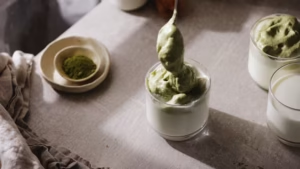Instant coffee remains a convenient solution for those craving a quick caffeine fix. Yet, like all food products, instant coffee can go bad. But how can you tell if your instant coffee is past its prime? In this comprehensive guide, we’ll explore the telltale signs of spoiled instant coffee, ensuring you never have to endure a bad cup again.
Why Instant Coffee Goes Bad
Before we can identify the signs of expired instant coffee, it’s essential to understand why it spoils in the first place.
Exposure to Moisture
Moisture is the enemy of instant coffee. When instant coffee granules come into contact with water, they begin to dissolve. Even minimal exposure to moisture can cause clumping and degradation.
Oxygen and Air Exposure
Oxygen is another culprit. The more you open and close your coffee container, the more air gets in. This air exposure can lead to oxidation, which degrades the quality and flavor of the coffee.
Temperature Fluctuations
Temperature changes can also impact the quality of instant coffee. Storing your coffee in a place with fluctuating temperatures can accelerate the degradation process.
Appearance Changes
One of the first indicators that your instant coffee might be bad is a change in appearance.
Clumping and Lumps
Good instant coffee should have a consistent, free-flowing texture. If you notice clumps or lumps, this is a clear sign that moisture has entered the container.
Color Alteration
Fresh instant coffee typically has a uniform color. Any change, such as darkening or uneven coloration, suggests that the coffee has started to degrade.
Mold Presence
Though rare, mold can grow in instant coffee if it has been exposed to excessive moisture. Mold is a clear indicator that your coffee is no longer safe to consume.
Smell the Coffee
Your sense of smell is a powerful tool in determining the freshness of instant coffee.
Sour or Off Odors
Fresh instant coffee should have a strong, pleasant aroma. If it smells sour, musty, or off in any way, it’s likely gone bad.
Lack of Aroma
On the flip side, a lack of aroma can also indicate that the coffee has lost its potency. If your instant coffee smells faint or weak, it may have expired.
Chemical or Metallic Smell
One more red flag is a chemical or metallic smell. This could be due to contamination or degradation of the coffee’s natural oils.
Tasting the Difference
Sometimes, the only way to be sure is to taste the coffee.
Bitter or Sour Taste
Fresh instant coffee should have a balanced flavor. If it tastes unusually bitter or sour, it’s likely that the coffee has gone bad.
Metallic or Chemical Taste
Similar to smell, any metallic or chemical taste is a warning sign. This can indicate that the coffee has been contaminated or has begun to degrade.
Lack of Flavor
If your instant coffee tastes flat or lacks any distinctive flavor, it might have lost its potency, indicating that it’s past its prime.
Storage Tips to Prolong Freshness
Proper storage can significantly extend the life of your instant coffee.
Keep It Airtight
Always store your instant coffee in an airtight container to minimize exposure to air and moisture.
Store in a Cool, Dry Place
Avoid storing instant coffee in places with temperature fluctuations, like near the stove. A cool, dry pantry is ideal.
Avoid Frequent Opening
Try to limit how often you open the container. Frequent opening allows air and moisture to enter, accelerating the degradation process.
Understanding Expiry Dates
The expiry date on your instant coffee can provide valuable information.
Best Before Date
The “best before” date is a recommendation for when the coffee will be at its peak flavor. It doesn’t necessarily mean the coffee is unsafe to consume after this date.
Use-By Date
A “use-by” date indicates the last date the manufacturer guarantees the product will be safe to consume. It’s best to adhere to this date closely.
Manufacturing Date
Some packages include a manufacturing date. Knowing this can help you gauge how long the coffee has been on the shelf.
Instant Coffee Types and Their Shelf Life
Different types of instant coffee have varying shelf lives.
Freeze-Dried Coffee
Freeze-dried instant coffee tends to last longer because the freeze-drying process removes more moisture.
Spray-Dried Coffee
Spray-dried coffee may have a shorter shelf life due to slightly higher remaining moisture content.
Single-Serve Packets
Single-serve packets are often more resistant to spoilage because they are individually sealed, reducing exposure to air and moisture.
Signs of Poor Quality vs. Spoiled Coffee
It’s important to differentiate between poor quality and genuinely spoiled coffee.
Cheap Coffee Brands
Low-quality instant coffee might not taste great but isn’t necessarily spoiled. Look for other signs before discarding.
Old Coffee
Similarly, coffee that’s lost some of its aroma or flavor might just be old rather than spoiled. It’s still safe to consume, though it might not be as enjoyable.
Contaminated Coffee
Spoiled coffee will show more dramatic signs like mold, unusual odors, and off tastes, indicating it’s no longer safe to drink.
What to Do with Spoiled Instant Coffee
If you determine that your instant coffee has indeed gone bad, here are some steps to take.
Dispose of It Properly
Discard spoiled coffee in a sealed bag to prevent any potential contamination in your kitchen.
Clean the Container
Clean and thoroughly dry your coffee container before using it for new coffee to avoid any lingering moisture or contamination.
Replace with Fresh Coffee
Replace your spoiled coffee with a fresh batch. Consider buying smaller quantities to ensure you use it up before it goes bad.
Conclusion
Knowing how to identify spoiled instant coffee can save you from a disappointing or even unsafe brew. By keeping an eye on changes in appearance, smell, and taste, and by storing your coffee correctly, you can enjoy a fresher, more flavorful cup every time. If you’re unsure about the condition of your coffee, it’s always better to err on the side of caution.
FAQs
How long does instant coffee last?
Typically, instant coffee can last up to two years if stored properly.
Can you get sick from expired instant coffee?
While expired instant coffee usually loses flavor, if it shows signs of mold or has an off smell or taste, it could potentially make you sick.
Is it safe to drink old instant coffee?
Old instant coffee is generally safe to drink, but it may not taste as good. Always check for signs of spoilage first.






